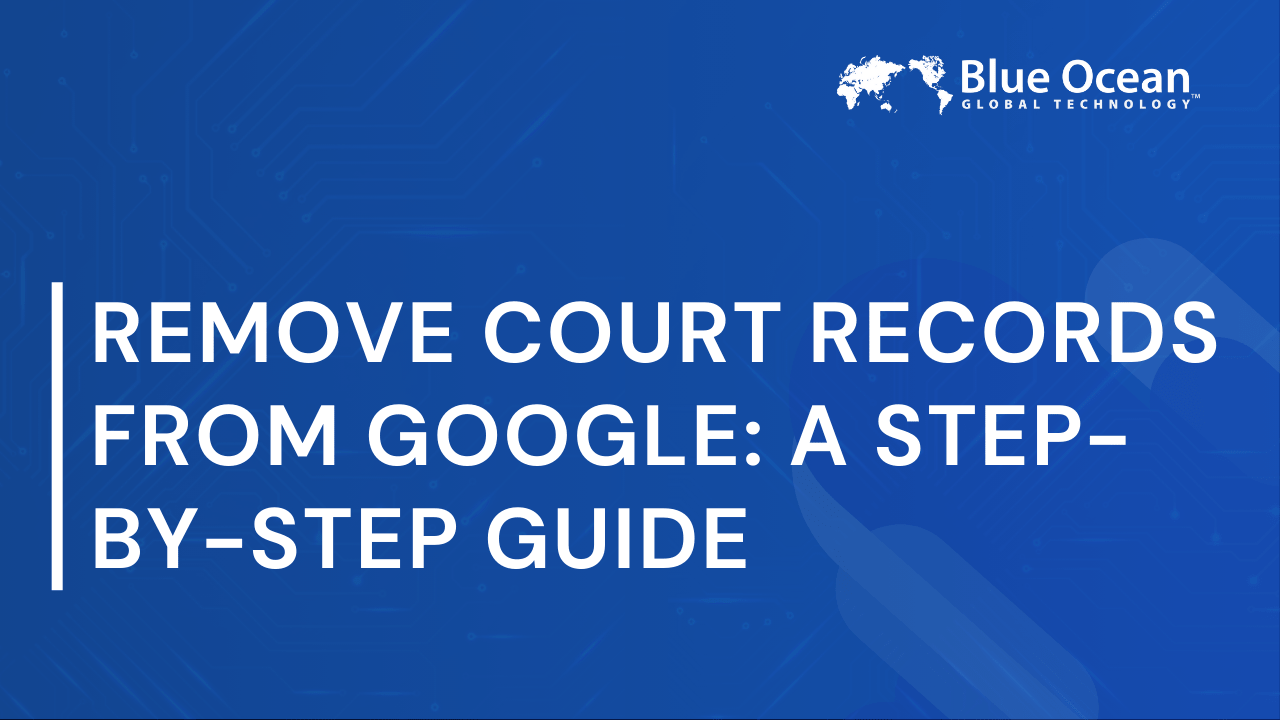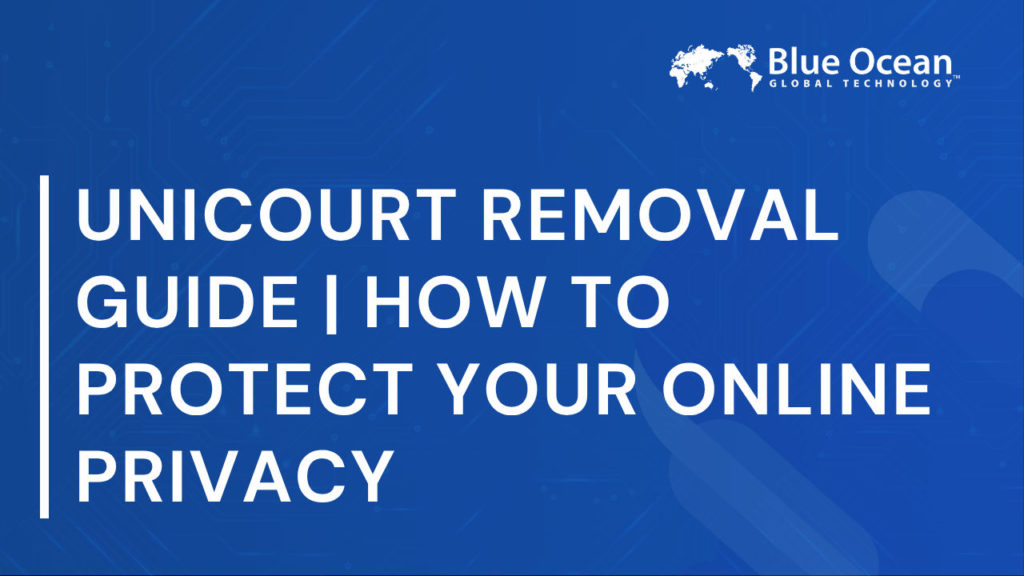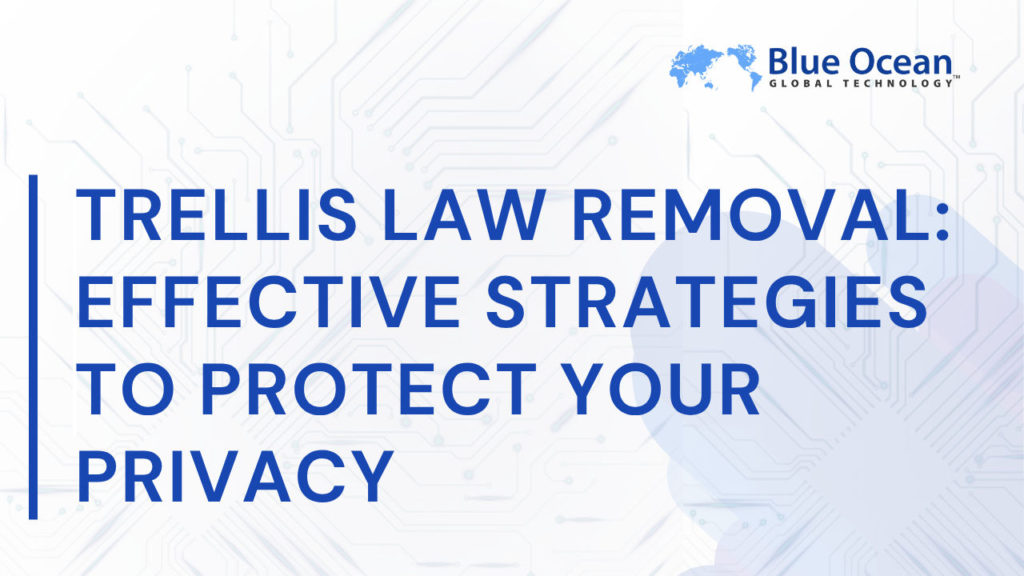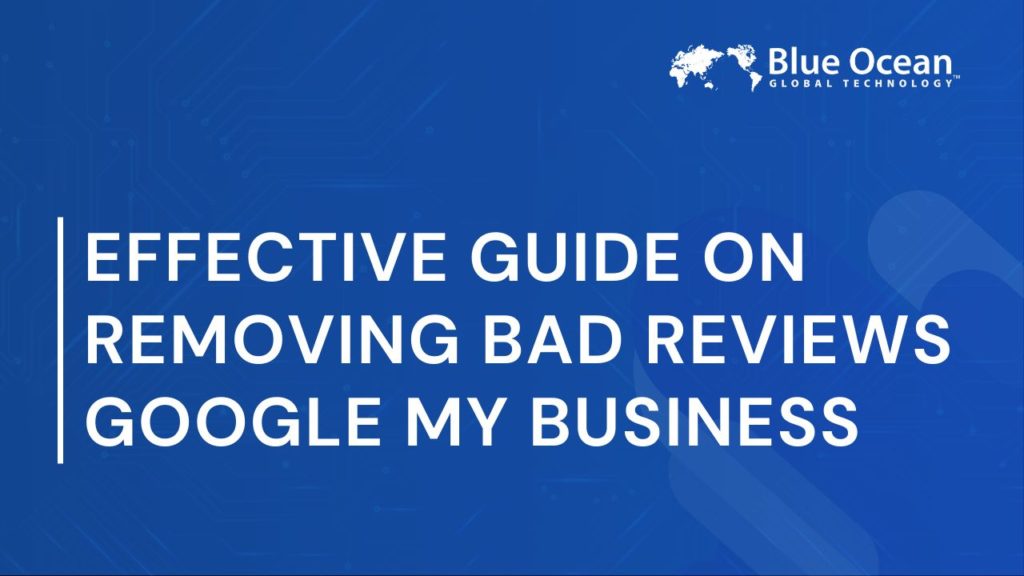- Court records on Google can be sensitive to your reputation online.
- Removing court records from Google is required to protect privacy and online reputation.
- Legal and online measures can be used to get court records erased by Google.
- Some best practices can protect your digital reputation and privacy.
The internet does not easily lose its memory. Although your case might be sealed or destroyed, court records can remain on Google search forever. This can impact your privacy, career, and peace of mind. Potential employers, business associates, and even acquaintances can impose judgments on the results even when the record is old, unjustified, or dismissed. This can also lead to online defamation.
The question, then, is how to delete court records on Google. In this blog, we will take you through the legal as well as practical means to seek a removal, strategies to suppress sensitive information, and how to reclaim your online reputation.

What is Wrong with Court Records on Google
Below are some ramifications of having your court records online
Privacy and the Public Perception
Court records can be on the first page when somebody Googles your name. People often view only the first page of search results, and so such records tend to dominate perceptions.
Professional Implications
Potential employers and commercial partners more than often perform Google searches about you. An apparent court record, even one that favors you, can hurt, draw suspicion, and deprive you of some fine opportunities.
Emotional and Social Strain
In addition to professional harm, having your personal history publicly exposed can be overwhelming. There is a sense of powerlessness when one’s personal information is accessible to anyone with only a single click.
Removing Court Records from Google
Removing negative content online can be daunting. Deleting court records is not always a guarantee. However, there are several tactics that could decrease their appearance or get rid of them.
Step 1: Check to see whether your court record can be expunged or sealed.
Expunged records are legally destroyed, whereas sealed records are not visible to the public. When granted, such a request can be sent to Google and the original publisher to prove removal is needed.
Step 2: Ask for removal at the source site
Google is not the digital equivalent of a medical file cabinet. Start by reporting the issue on personal content removal from Google search. It indexes the records of other websites. To get rid of real taboo, go to the site whose hosting offices (these may be governmental portals, third-party databases, or news media). Ask for removal, whether it is outdated information, inaccurate, or court-sealed records.
Step 3: Send Legal Removal Request to Google
In case you receive a refusal from a site to delete the record, it is possible to request its removal by Google using the Google Legal Help Center. Google will take into account requests where:
- Content includes sensitive personal information (e.g., SSN, bank information).
- The record is obsolete, incompetent, or deceitful.
- The case was expunged or sealed legally.
Step 4: Suppressing with Positive Content
Sometimes, removing content online is not possible. Online reputation management can help solve this in such cases. By placing highly optimized and favorable online content. You can relegate the negative search results to lower pages where few visit.

Steps to Ask for Removal from Google
- Open a Google account.
- Go to Google Content Removal Tool or Legal Help Page.
- Choose the option of Personal Information or Court Record Removal.
- Copy the particular URL of the content.
- Explain why the record ought to be expunged (inaccurate, expunged, private).
- Provide any supporting legal documents.
- Put in the request and wait to receive the response from Google.
Want Expert Guidance on Online Privacy and Reputation Management?
Speak to our experts to suppress negative records on your name and build a strong personal brand.
Encouraging Positive Content
When working on getting court records removed from Google, it is also useful to promote positive and professional content in your own digital space. Start by claiming your name online on platforms such as LinkedIn, X, or your website. These can be your formal online identity and can suppress old records. The next great trick would be to publish blogs and articles that demonstrate your expertise, accomplishments, and intellectual leadership in your domain.
Favorable press coverage, interviews, or community service can also help you reinforce a positive image online. Be active and participatory online, whether it is updating, knowledge sharing, or taking part in a professional dialogue. The larger your online footprint, the less likely that outdated court records will affect your search. Reputation management agencies can help align your vision with your brand image.

Seeking Court Record Removal In Special Cases
Court records are not all treated equally, and removal requests are more likely to be successful in certain cases. In case your case is expunged or sealed, you may present certified court orders requesting that it be deleted from Google and the original hosting site. In mistaken identity cases in which someone links records to your name, official documentation will assist in clarifying and resolving the case. Google also provides advanced digital security and privacy guidelines on its website.
When the information is either no longer relevant or stale, you are allowed to ask them to suppress or remove it so that it does not have any impact on your current reputation. In case of sensitive information, say account information or a health-related issue, Google tends to prioritize removal so as to safeguard your privacy.

Best Practices to Protect Your Reputation Online
Once you manage to clear court records, take the help of professional experts to rebuild or maintain your digital identity. Begin by developing a favorable online presence by maintaining professional channels and posting about professional achievements. Follow up regularly to see what is being said about you online. You can create Google Alerts for your name so that it will alert you each time there is a mention.
Emphasise your successes in the form of certifications, awards, or even contributions in your area. These ensure your positive ranking at the top of search engine results. When court records can be located on more than one site, seek professional assistance. An expert witness or reputation management expert can walk you through legal takedown procedures and advanced protection methods.
Conclusion
The process of removing court records from Google is not impossible, but it can be challenging. By taking legal measures, sending direct removal requests, and using reputation management techniques, you can reduce the exposure of sensitive information online. Although complete removal may not always be possible, developing and managing a positive presence can ensure that old or off-topic records do not represent you. With some forethought, careful planning, and expert guidance, you can take control of your reputation online.
FAQs
1. Will I be able to delete court records in Google in the case they are available publicly?
Collective databases are frequently implacable. You can request your court records to be removed if they are old, closed, or erroneous. In case forced removal fails to work, suppression tactics can be used.
2. What happens in the case my records were dismissed or expunged?
Cases that have been expunged or dismissed may be deleted with evidence. Send legal records to Google and the hosting site as proof. This benefits the posture of your request.
3. What shall I do in case I cannot delete the records?
Consider reputation management. Create professional pages, post positive information, and suppress old records in search engines. Professionals like expert witnesses or reputation management services can help.
Protect Your Online Reputation to Stay Ahead in Business
Learn to create an online presence that represents the true you. Maintain your online reputation with 24/7 support.















